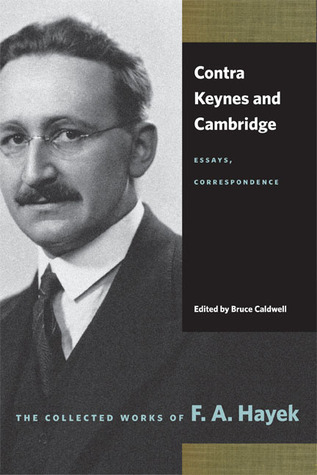
Contra Keynes and Cambridge is composed of three parts: Part I consists of two essays, the first being a recollection by Hayek of his time at the London School of Economics in the 1930s, followed by his contribution to an early debate about the paradox of saving; Part II reprints the full debates between Hayek and Keynes in Economica in the early 1930s, and Hayek's exchanges with Sraffa that followed; Part III includes some of Hayek's reminiscences on Keynes. F. A. Hayek challenged one of the world's leading economists, John Maynard Keynes, and his economic theories, which sparked a spirited debate that has influenced economic policy in democractic countries for decades. F. A. Hayek (1899–1992) was awarded the Nobel Memorial Prize in Economic Sciences in 1974 and the Medal of Freedom in 1991 and was one of the leading Austrian economists and political philosophers of the twentieth century. Bruce Caldwell is Professor of Economics and the Director of the Center for the History of Political Economy at Duke University. He is the current General Editor of The Collected Works of F. A. Hayek.
Author

Friedrich August von Hayek CH was an Austrian and British economist and philosopher known for his defense of classical liberalism and free-market capitalism against socialist and collectivist thought. He is considered by some to be one of the most important economists and political philosophers of the twentieth century. Hayek's account of how changing prices communicate signals which enable individuals to coordinate their plans is widely regarded as an important achievement in economics. Hayek also wrote on the topics of jurisprudence, neuroscience and the history of ideas. Hayek is one of the most influential members of the Austrian School of economics, and in 1974 shared the Nobel Memorial Prize in Economics with Gunnar Myrdal "for their pioneering work in the theory of money and economic fluctuations and for their penetrating analysis of the interdependence of economic, social and institutional phenomena." He also received the U.S. Presidential Medal of Freedom in 1991 from president George H. W. Bush. Hayek lived in Austria, Great Britain, the United States and Germany, and became a British subject in 1938.